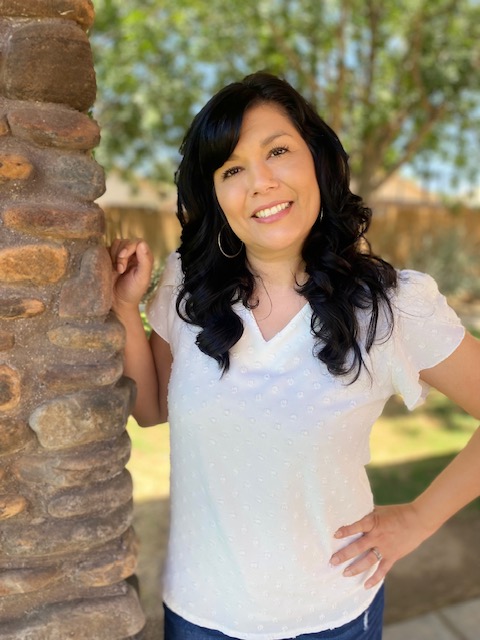Can you imagine what it must have been like traveling the 2,170 miles of the Oregon Trail from Independence, Missouri, to the Oregon Territory? Let’s say that you were among the first to travel in 1811 when the trail was only wide enough to use by walking or on horseback. Slow going, for sure! However, by 1836, the trail was wide enough for wagons to start traveling – much faster and more efficient.
The path took time to develop, and thank goodness it led to the place travelers wanted to go!
But what if some pioneers decided they no longer wanted to head to the Oregon Territory and instead wanted to take a left at Albuquerque? Some Oregon trail ruts still exist today in stone due to how much travel occurred, so getting out of the rut takes work! Have you ever heard the phrase “stuck in a rut”?
The firing of the neurons in our brains works much like the ruts of the Oregon Trail.
Science has shown that neurons that fire together wire together. New neuropathways are formed because God’s design makes it efficient for our brain to work this way. (Ever drive home from work on “autopilot” and forget to make a stop you wanted to make? That is how our neuro networks keep us on track, much like the Oregon Trail.)
Life is good when our neuropathways take our thoughts where we want them to go and allow us to control them.
But what happens when they take us down trails of thoughts not where we want to go, activating (triggering) memories we are not ready for or leading us to poor decisions? That’s when problems arise! It takes great internal work (and sometimes professional help) to understand this process, get out of the rut, and change the pathway.
It would help if we explored how the pathway formed in the beginning. Often, it is a traumatic event or difficult experience from the past. Sometimes, we are aware of this “trail” forming, but many times, we are not and only later realize that a new pathway has been formed.
While it takes hard work, it is possible to change unwanted neuro pathways.
Sometimes it helps to examine the pathway and Name it. Tame it. Reclaim it. Here is an example from my life:
Name It
(I can say to myself): “When I hear my kids/spouse/mother argue, experiences from my past have made neuro-pathways that make me think it is my job to be the peacemaker. When these pathways are triggered, they make my stomach feel unsettled, my heart races, and I feel hot all over.” I notice that I just want to do whatever it takes to make everyone happy and ignore my body’s response.
Tame It
Instead, I can work to respond by saying, “I am feeling triggered right now due to the arguing. I am going to step away and try to get my thoughts and my body’s response under control.” I can do this by deep breathing, praying, focusing on scripture, and/or going for a walk.
Reclaim It
I can take my thoughts and responses captive and give them to God, acknowledging that He is the peacemaker, not me. Then, later that night or the next day, I can say: “I love you, and it is hard to hear you argue. Is there something you need from me or something I might be able to help with now that I am calmer?” Be curious…How might God use you in this? Note: You can decide if what they suggest is something you can or are willing to do.
Perhaps this process is partly what the Apostle Paul meant when he said, “We take captive every thought to make it obedient to Christ” (2 Corinthians 10:5). However, taming our thoughts is no easy feat! For example, God says we are his workmanship (Eph 2:10), but our inner thoughts might tell us we have nothing to offer. God says he delights in us (Zeph 3:17), but we can feel full of shame and doubt. Our thoughts fill us with fear and weakness, but God says to fear not, for He is with us and will strengthen us (Isaiah 41:10).
Taking every thought captive means that we don’t allow ourselves to get into (or stay in) the old and more rutted neuropathway that isn’t helping us but instead work to form new pathways based on God’s truths.
We may need to speak God’s truths aloud: I am his workmanship! God delights in me! God is with me and strengthens me! I am NEVER alone! Taking every thought captive is worth the mental and spiritual work to change the pathways.
It wasn’t easy for Paul, and it isn’t easy for us, but it is worth the effort to understand our responses and get out of the “ruts” we no longer want to be in! You are worth the effort, and you can begin blazing a new trail today!
~Robin Blumenthal, Trauma-Informed Trainer
Robin is a trauma-informed trainer, parenting coach, speaker, and writer. She also serves part-time as the Local Outreach Pastor at Pantano Christian Church in Tucson, AZ. She has a passion for partnering with schools and churches. She is a certified trainer with the ACEs Consortium and a Trained Independent Facilitator of the Love and Logic® Curriculum. She has a B.S. in Child Development and an M.A. in Human Resource Leadership. Robin published her first book in November of 2020 – Where in the Zoo Are You? – a children’s book with resources to help children talk about their emotions concerning traumatic events like COVID-19. Connect with Robin at www.robinblunmenthal.org.





Thanks Robin! I was just trying to think of a way to explain what you were talking about and you explained it perfectly.
Thank you.